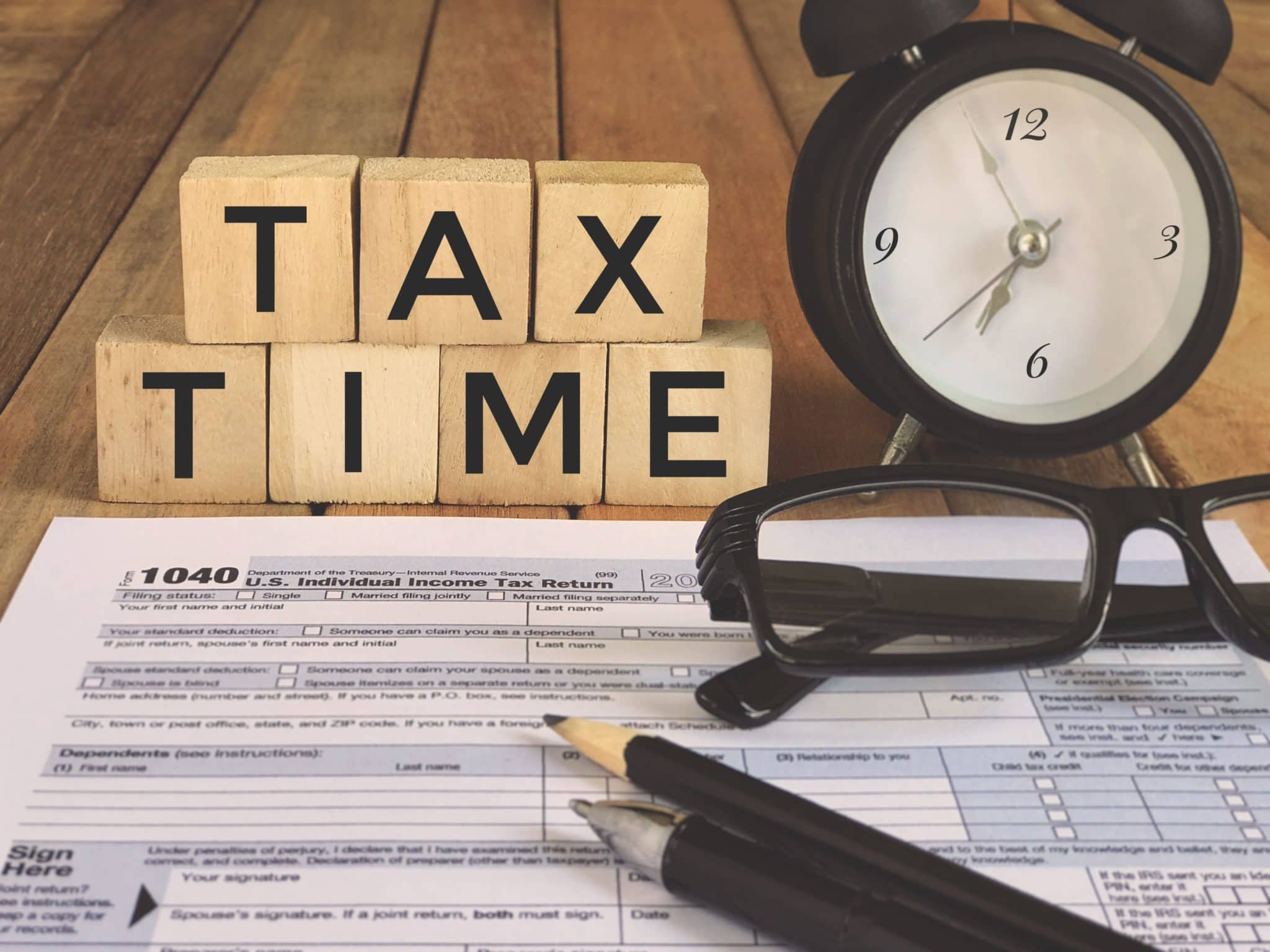With the dawn of the new year, taxpayers need to be thinking about the tax forms that are required to be filed within the next few months. Some, such as your Individual Income Tax Return, are well-known and not easily forgotten. Self-employed individuals, however, may be required to file other less understood tax forms as early as the end of January.
If you own your own business, it is important to understand what tax forms you will be required to file and when those forms are due, as failure-to-file penalties at both the Federal and state level are some of the heftiest out there. Also, if taxes were due with those tax forms, then you will be accruing failure-to-pay penalties, as well as interest, until you send the government its money. You could potentially be out a ton of cash in penalties and interest that otherwise could have gone back into your business or towards paying yourself a hard-earned salary.
However, before you become too discouraged, know that we are here to help. Listed below are some of the more common tax forms that self-employed individuals may be required to file each year along with due dates as of this publishing. Keep in mind that while the due dates for many of these tax forms were extended in 2020, they may or may not be for 2021. You should do your research and keep in touch with your bookkeeper or accountant just in case due dates shift.
Income Tax Returns
The IRS and most states require income tax returns to be filed at the beginning of the year that report the amount of taxable income that you or your business had, offset by allowable expenses and other deductions. Everyone who has had income above the minimum filing requirement must file at least an individual income tax return.
For self-employed individuals, your business will either be reported on your personal income tax return or on a separate business tax return.
Form 1040 Individual Income Tax Return
2021 Due Date: April 15th
Extension Due Date: October 15th
If your business is not incorporated or if you are not partnered with another taxpayer, you will need to file a separate schedule with your personal income tax return. While other forms may be used for specific types of businesses, the Schedule C Profit or Loss From Business is the most commonly used schedule to report income and expenses from your self-employed venture.
Forms 1065 U.S. Return of Partnership Income or 1120-S U.S. Income Tax Return for an S Corporation
2021 Due Date: March 15th
Extension Due Date: September 15th
If you have gone into business with another taxpayer, you have formed a partnership and must file Form 1065 to report business income and related expenses. However, you can also make an S election to incorporate the business and then file Form 1120 S instead. Both businesses are considered flow-through entities with all income and expenses being reported on K-1’s that are then filed with the owners’ individual tax returns.
Form 1120 U.S. Corporation Income Tax Return
2021 Due Date: April 15th
2021 Extended Due Date: October 15th
C Corporations are set up to stand on their own with no direct flow-through to owners. This means that, unlike an S Corporation or Partnership, no K-1 is distributed to the shareholders. Instead, the business will provide income to the shareholders through dividend distributions.
Forms 1099
There are various kinds of 1099 forms that report different activities, such as interest or dividend income, government payments, and nonemployee compensation. As a self-employed business owner, you may be required to file at least some 1099 forms. The more common 1099s you may be required to file are Forms 1099-NEC and 1099-MISC. Both are due towards the beginning of the year and neither can be extended. Before mailing any forms, check both the Federal and state filing instructions to find where the governing body wants the forms to be mailed and how they should be compiled.
Form 1099-NEC
2021 Issue Due Date: February 1st
Due to Recipient: February 1st
Payments reported in Box 7 of the 1099-MISC from prior years are being reported on a new form, Form 1099-NEC, this year. If you paid $600 or more to any person or business that is not a C Corporation for nonemployment services rendered, you must issue a Form 1099-NEC to them. Payments to independent contractors for contract work and payments to attorneys in connection with business-related legal services are examples of payments to be reported on a 1099-NEC.
You must send copies of the 1099 to the recipient, the IRS, and the state. You must also attach a Form 1096 Annual Summary to the copies of the 1099s you are sending to the IRS and state.
Form 1099-MISC
2021 Issue Due Date: March 1st
Due to Recipient: February 1st (or February 16th if reporting payments in Box 8 or 10)
You must issue a Form 1099-MISC to every person or business that is not a C Corporation you paid $600 or more to for rents, attorney fees for settlement agreements, medical and health care payments, etc. Also, royalties paid in excess of $10 must be reported on a 1099-MISC. Like Form 1099-NEC, you must also issue copies to the recipient, the IRS, and the state. It also requires a Form 1096 to be attached to the Federal and state copies.
Payroll
As a self-employed individual, you can also choose to hire others to work for you. If this is the case for your business, you are required to file payroll forms and pay payroll taxes throughout the year. There are many types of payroll forms that are required by the Federal and state governments, but here are a few more common ones. Much like 1099s, you should check the Federal or state instructions to find out where forms should be mailed and how they should be compiled.
Form W-2
2021 Issue Due Date: February 1st
Due to Recipient: February 1st
You are required to issue a W-2 to all employees. You must also provide a copy of the W-2 to both the IRS and the state. The IRS copy requires a Form W-3 attached to it, while the state may require an additional form as well.
Form 941
Due Date: Required to be filed by the end of the month following the reported quarter
You must submit a quarterly Form 941 to the IRS reporting the amount of taxes you withheld from employee wages for Federal income tax, Social Security, and Medicare. If you have a balance due, you will either be required to send a check with the form or submit an EFTPS deposit online.
Form 940
2021 Due Date: January 31, 2021 if payments are due, or February 10, 2021 if no tax is due
The IRS requires that you submit an annual Form 940 to report Federal unemployment taxes paid and owed to the IRS. Like Form 941, if you have a balance due, you must attach a check or make an online deposit.
State Payroll Forms
Your state may require various additional forms to be filed throughout the year. For example, employers in the state of Virginia are required to file a quarterly Form FC20/21 State Unemployment Form. If you are unsure of what forms your state requires or when the due dates are, check with your local state tax commission and they will point you in the right direction.
Need Help?
While the forms outlined above are not a comprehensive list, hopefully this information will start you out on the right foot. Please take the time to use this information as you look over your 2020 tax year. If you need any help navigating your tax needs, we will be happy to assist. Please contact us.
© 2021
Written by: Ben Noel, CPA

Ben Noel joined Thompson Greenspon in September of 2020 as a Tax Senior. Prior to joining the firm, he worked for a regional accounting firm in the Boise, Idaho area. Ben has experience with providing tax services for real estate investment entities, professional services firms, farms, and closely held businesses and their owners. His experience includes tax compliance and accounting assistance for S corporations, partnerships, sole proprietors, nonprofits, and individuals.
Ben graduated from Brigham Young University – Idaho with a Bachelor’s degree in Accounting in 2016. He received his Master’s in Accountancy at Boise State University in 2017.
Ben has served as the treasurer for The House Next Door since January of 2020. He is a member of the American Institute of Certified Public Accounts, the Virginia Society of Certified Public Accountants, and the Idaho Society of Certified Public Accountants.


